In 2019, Western Illinois University (WIU) announced the reception of a 10 million dollar USDA-NIFA grant.
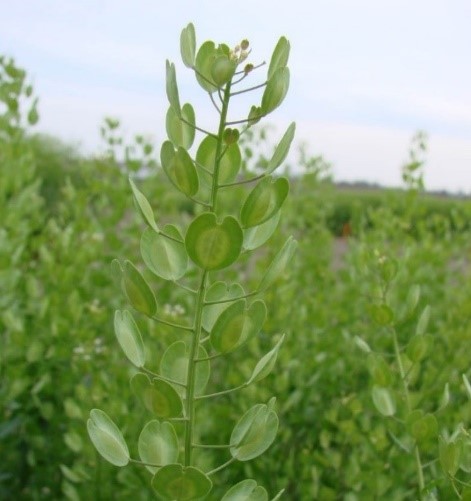 WIU will be the lead institution for this grant and will collaborate with The Ohio State University, Illinois State University, University of Minnesota and the University of Wisconsin-Platteville to complete the objectives of the grant. WIU will utilize the grant to research the commercialization of pennycress as a biofuel for the aviation industry to reduce its carbon footprint.
WIU will be the lead institution for this grant and will collaborate with The Ohio State University, Illinois State University, University of Minnesota and the University of Wisconsin-Platteville to complete the objectives of the grant. WIU will utilize the grant to research the commercialization of pennycress as a biofuel for the aviation industry to reduce its carbon footprint.
Starting in 2009, the Illinois Soybean Association has helped fund much of the early crop rotation studies at WIU looking at the impact of pennycress on soybean production. Results from this research found pennycress was well suited for the traditional corn and soybean rotation program and helped provide a small yield increase of three bushels.
Pennycress (Thlaspi arvense) is a high-yielding oilseed crop that can be grown as an ecosystem, benefiting winter cash cover crops throughout the U.S. Midwest Corn Belt. Pennycress generates income, which will help incentivize farmer adoption.
Integration of pennycress into existing corn-soybean rotations extends the growing season on established croplands, avoiding food crop displacement, while yielding up to two billion gallons of oil annually, contributing to the 25-year goal of 50 billion gallons of biofuels.
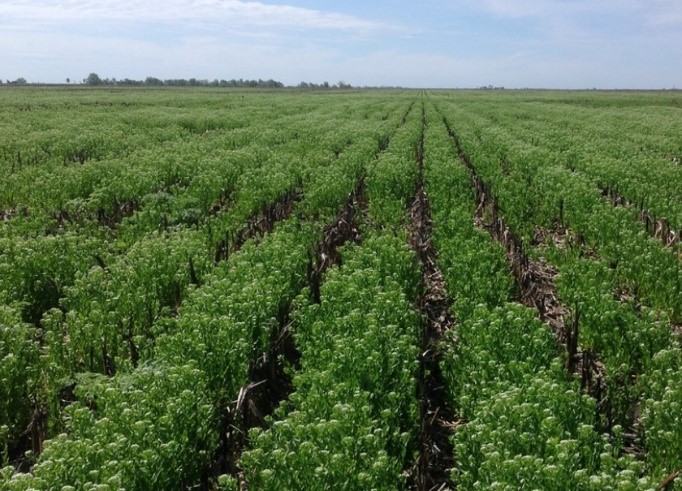 The integrated CAP program will optimize off-season pennycress production and overcome supply chain bottlenecks, with the goal of commercializing pennycress within five years. The program will focus on improving pennycress germplasm and agronomic management, ecosystem services characterization and supply chain establishment with an emphasis on post-harvest seed management.
The integrated CAP program will optimize off-season pennycress production and overcome supply chain bottlenecks, with the goal of commercializing pennycress within five years. The program will focus on improving pennycress germplasm and agronomic management, ecosystem services characterization and supply chain establishment with an emphasis on post-harvest seed management.
WIU will develop education and extension networks that enhance pennycress adoption and profitability by providing science-based guidance to producers and other stakeholders—train the next generation of farmers, workers and scientists—and highlight new career opportunities. Since the researchers recognize the need for regionally adjusted agronomic practices, a strong emphasis will be placed on working directly with producers and industry representatives. This relationship will integrate research-based knowledge to improve on-farm economics and highlight environmental benefits. The integration of pennycress as a cash cover crop will positively impact the profitability of production agriculture, decrease soil erosion and nutrient runoff thereby protecting water systems, support pollinator health and biodiversity, reduce herbicide use for weed control, increase energy security by diversifying the nation’s energy portfolio and contribute to the economic health of rural communities.
Win Phippen, Ph.D., WIU, will be conducting a multi-state strip trial containing the top ten pennycress breeding lines at 8 different locations in Illinois, Ohio, Wisconsin and Minnesota. Phippen will also be researching nitrogen rate and time of application, fungicide trials for late season diseases, and variety trials of 54 varieties of pennycress. Mark Bernards, Ph.D., will be assisting with weed research regarding crop rotation and use of herbicides.
Additional information on the project can be found at https://www.iprefercap.org/.
NEW Opportunities:
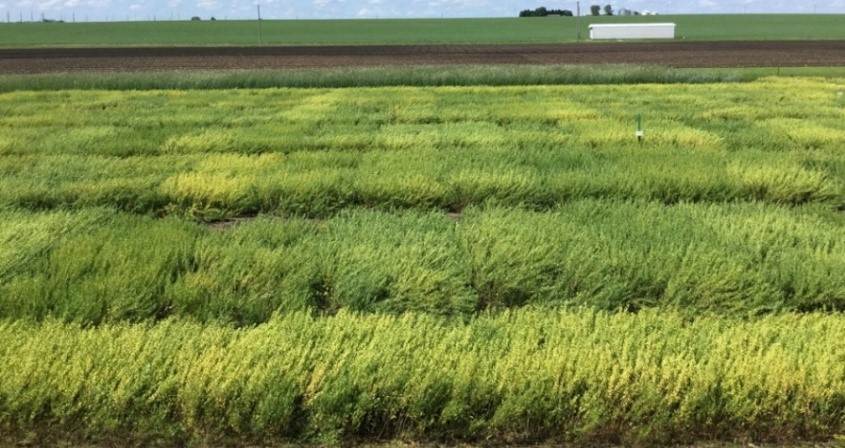 During the Fall of 2021 growers between highway 180 and 164 in Illinois will have the opportunity to participate in the first commercial launch of pennycress. Pennycress is planted after corn or sometimes into standing corn (aerial application) in the fall, Sept. 15 – Oct. 15. It is harvested May 10 – 30 in the spring with a standard platform combine. This crop will need to follow corn that has not had HPPD (Group 27) herbicides, i.e., Halex®, etc. Contracts will be offered to growers and the commercial partner (CoverCress, Inc.) will manage the logistics and pricing during the contract. Additional information on how to grow pennycress can be found at https://www.covercress.com.
During the Fall of 2021 growers between highway 180 and 164 in Illinois will have the opportunity to participate in the first commercial launch of pennycress. Pennycress is planted after corn or sometimes into standing corn (aerial application) in the fall, Sept. 15 – Oct. 15. It is harvested May 10 – 30 in the spring with a standard platform combine. This crop will need to follow corn that has not had HPPD (Group 27) herbicides, i.e., Halex®, etc. Contracts will be offered to growers and the commercial partner (CoverCress, Inc.) will manage the logistics and pricing during the contract. Additional information on how to grow pennycress can be found at https://www.covercress.com.
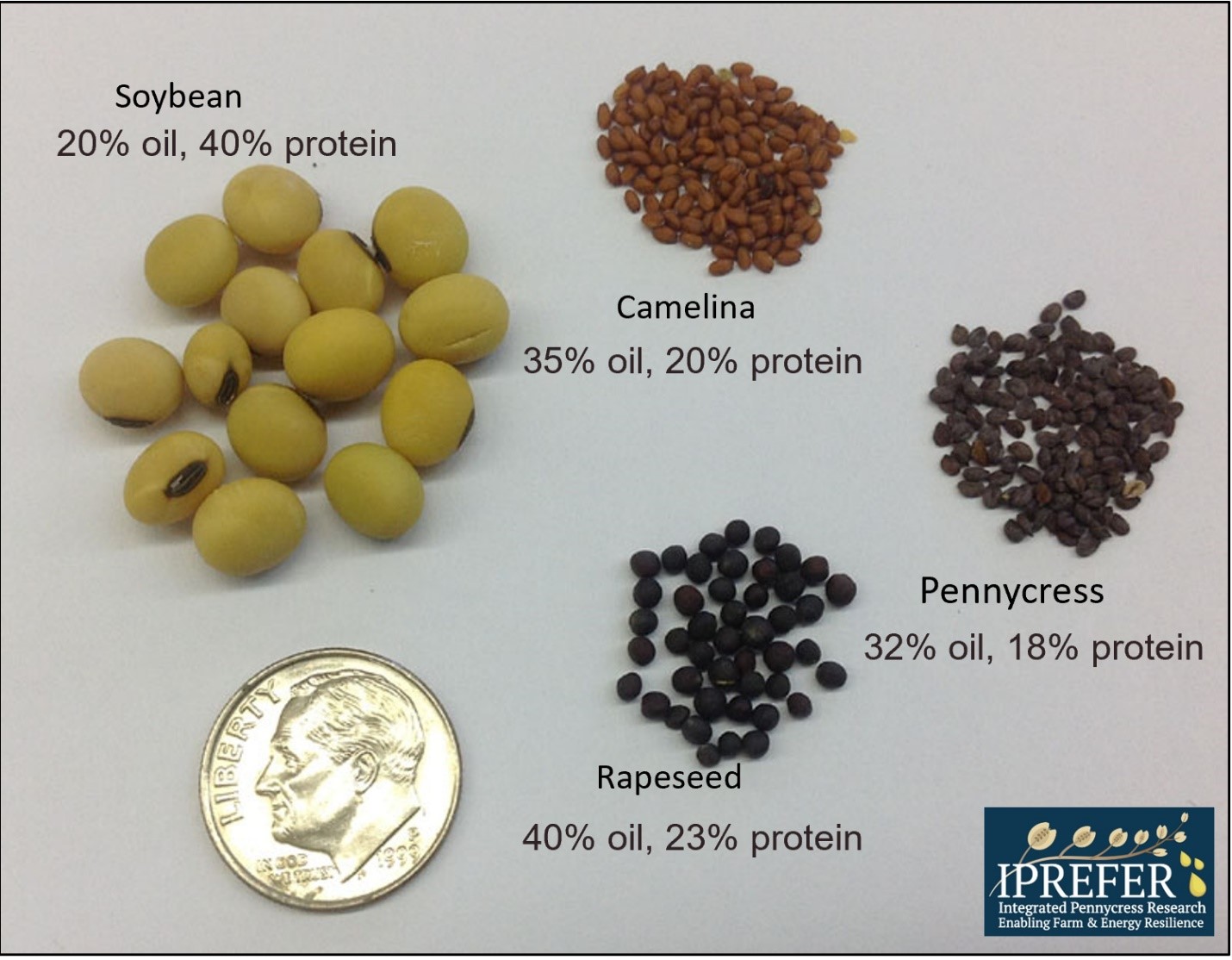



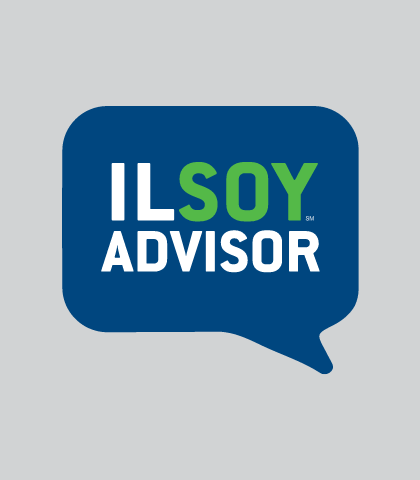
 and then
and then